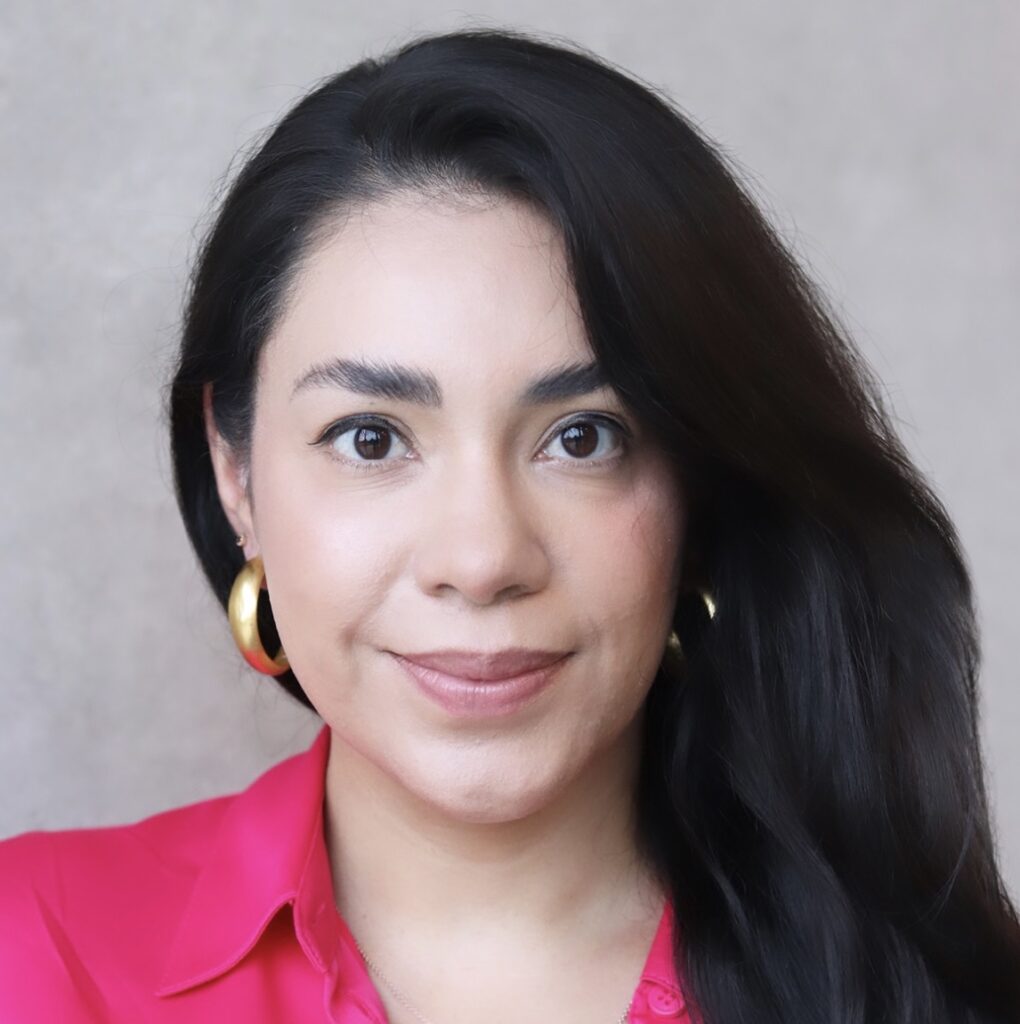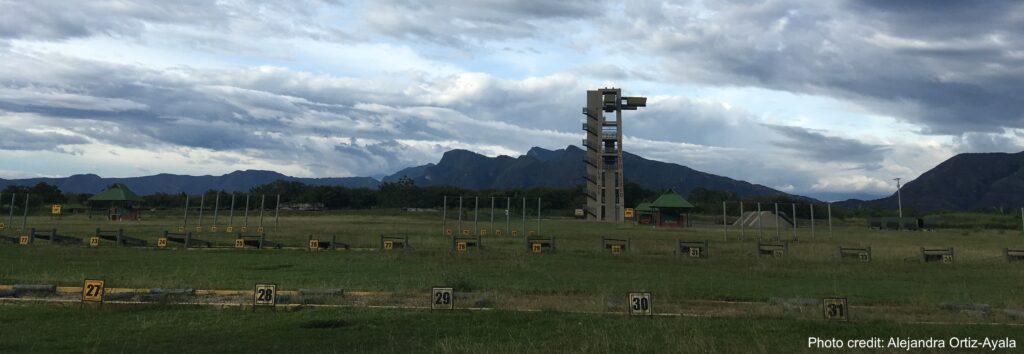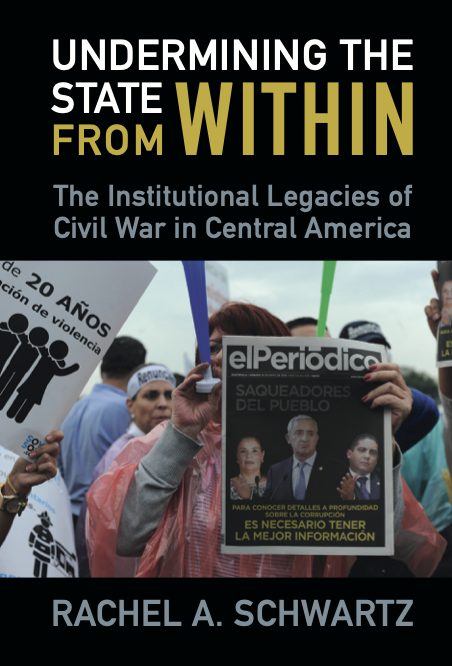
Alejandra Ortiz-Ayala
‘Guaranteeing physical protection for all (but especially for those categorised as enemies during a conflict) necessitates the transformation of security sector “war mentalities” post-peace. Such shifts require addressing emotions, rethinking worldviews, and healing relationships between state actors and civilians…’
In 2016, the Revolutionary Armed Forces of Colombia-People’s Army (South America’s oldest Marxist-Leninist guerrilla group) signed a Comprehensive Peace Agreement (CPA) to end a conflict that started in 1964. However, unlike other peace agreements, Colombia’s CPA did not include security sector reform.
In theory, after a peace agreement, the security sector is bound to embrace their long-standing enemies as equals and protect them as though they are no longer enemies. In that sense, state security institutions are responsible for building a safe atmosphere for all actors post-agreement, and creating foundations for a sustainable peace. This presupposes a change in mindsets (one of the themes of this year’s Civil War Paths blog series), as regards the conception of social groups and individuals that used to be considered antagonistic.
My research on the Colombian peace process explores whether this mindset shift has indeed taken place post-CPA. My findings reveal that, on the contrary, Colombian soldiers continue to think through wartime cleavages (in Colombia’s case, left-right ideological cleavages) after the agreement. Further, Colombian soldiers perceive the agreement as a betrayal: legitimising rebel goals through FARC-EP’s integration in state-level politics. Both these elements inhibit prospects for long-term peace. Understanding this inhibition is important for wider understandings on the transition out of war – a transition which requires transformation of relations between ex-combatants (state and non-state alike).
Difficult conversations
Before starting my research, I worked in Colombia’s National Center for Historical Memory (NCHM)’s pedagogy division, in a team led by Maria Emma Wills. The NCHM was created by Colombia’s Law 1448/2011, also known as the Law of Victims and Land Restitution – with the central motto ‘memory: an ally of peace’, and with a mandate to support historical commemoration, investigate atrocities, and reconcile victims.
The NCHM also sought to bring wartime antagonists together: fostering what Wills called ‘difficult conversations’, as a means of diffusing (or at least weakening) enmities that encourage confrontation. As other Civil War Paths researchers have found on this blog, mindset change (transformations in threat perception amongst former enemies) requires recalling painful memories through intense and emotional dialogue. It is exactly this dialogue that NCHM’s ‘difficult conversations’ programme undertook to engender.
My experience joining these difficult conversations amongst individuals from Colombia’s defence sector inspired my research questions:
- How does ideology influence the attitudes of state armed actors towards civilians after peace agreements?
- To what extent do state armed actors contribute to the persistence of violence – after peace accords?
- More specifically, how might soldiers’ ideological biases influence their willingness to protect civilians, depending on their group identity?
My research combines insights from political science and social psychology: answering these questions by developing a theory of individual and institutional bias.
Ideological bias amongst state combatants
During four months of fieldwork in 2019, I combined an original survey of 920 Colombian soldiers with 28 interviews, to assess their perceptions of FARC-EP ex-combatants, post-CPA. I found persistent biases amongst state security officials, regarding ex-combatants and civilians’ political/ideological identities, which contain the potential to reignite violence.
One sub-officer with a leading position in the Colombian Army’s educational division claimed:
For me those political groups seek to camouflage [communist, socialist, and leftist ideals] under different political ideals and labels [but] they are the same. For me, they are all the same, a plague! Plague! [Laughter.] Gustavo Petro [who won Colombia’s 2022 presidential elections]: he is the one who represents the left-wing; disgusting guerrillero. They [the left] start selling an ideology from the very foundations: destroying education, destroying family, and destroying religion. And if you see socialism, it’s always going to attack those three principles that are what form morality, ethics, morality.
Another front-line soldier with more than 10 years’ experience in the Army suggested:
I have nothing against left-wing people, but sometimes, the truth is, as I say, I am neutral, neither right-wing nor left-wing, but sometimes people on the right-wing they show more affection [toward the Army] than people on the left.
My research showed a pattern of soldiers being less likely to protect civilians they associated with left wing ideologies. These continuities in state security officials’ political attitudes and ideological preferences, the way they conceive enemies and threats across the transition out of war, have important implications for patterns of violence following the peace agreement. They inhibit the possibilities of mindset shifts, which enable a full peace.

War mentalities
My research introduces the concept of ‘war mentalities’ to characterise state security’s enemy-centric approach to peace: which frames some civilians as less deserving of state protection due to their group identities, or wartime roles. Guaranteeing physical protection for all (but especially for those categorised as enemies during a conflict) necessitates the transformation of security sector ‘war mentalities’ post-peace.
Such shifts require addressing emotions, rethinking worldviews, and healing relationships between state actors and civilians. Future reforms should start by re-considering metrics for evaluating the success of military operations, to capture everyday encounters between state forces and civilians. Post-war governments also need to allow conversations regarding state forces’ institutional responsibilities during the conflict, and be more vocal in refuting denial narratives amongst active and retired soldiers.
Such conclusions represent a contribution to understandings of the all-important relationship between security sector and civilians/ex-combatants during and after the conflict – in line with the Civil War Paths project’s highly relational and actor-centric framework. Understanding how conceptions of enmity are transformed, both within and beyond the security sector, is essential to building sustained peace after violence has ended.

